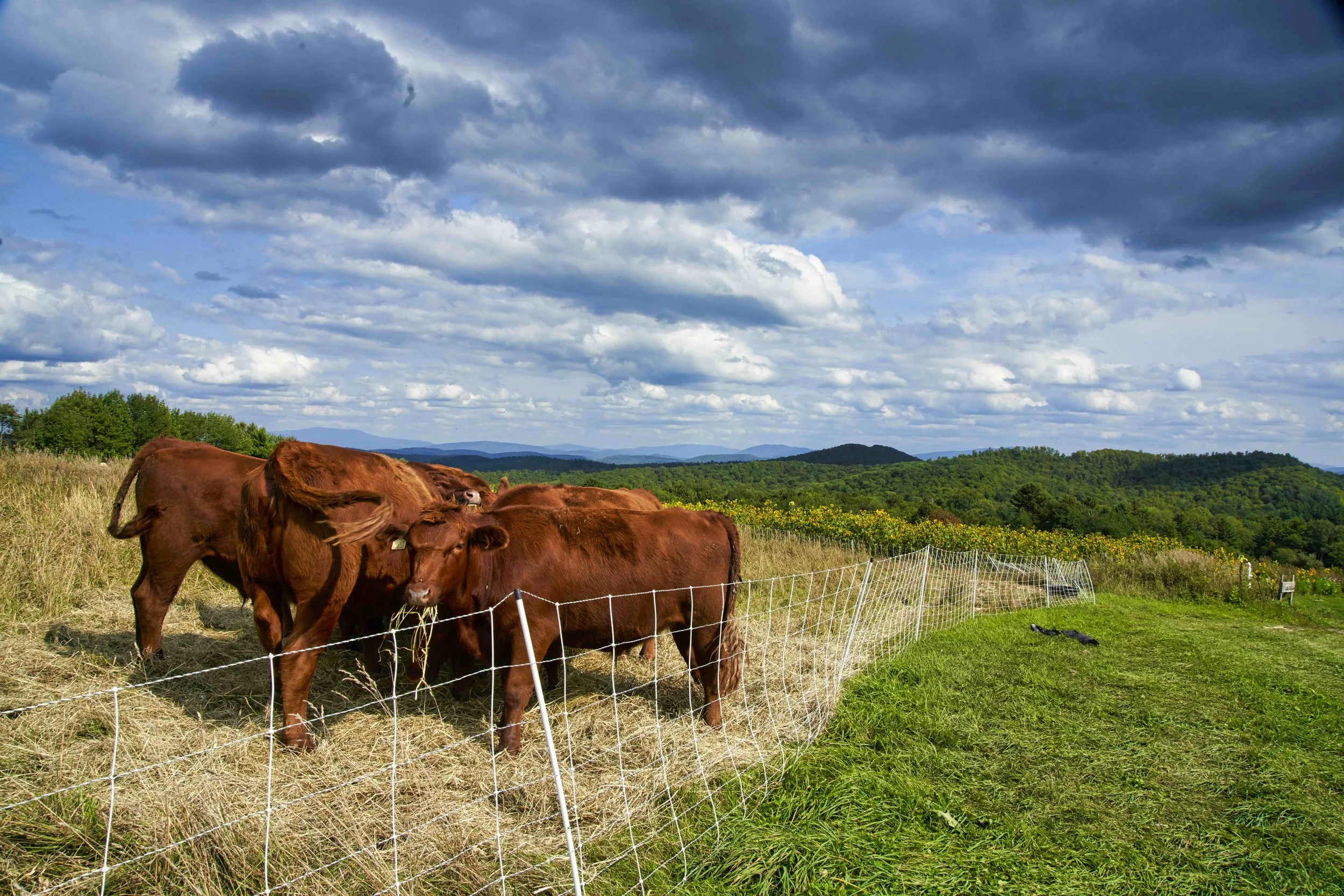Dig in and root down during a Mountain School Semester
A semester at the Mountain School gives 11th grade students the experience of shared work on a farm, courses to explore systems and critical thinking, programs on forestry and natural history, and the opportunity to learn both independence and interdependence in a community of peers.
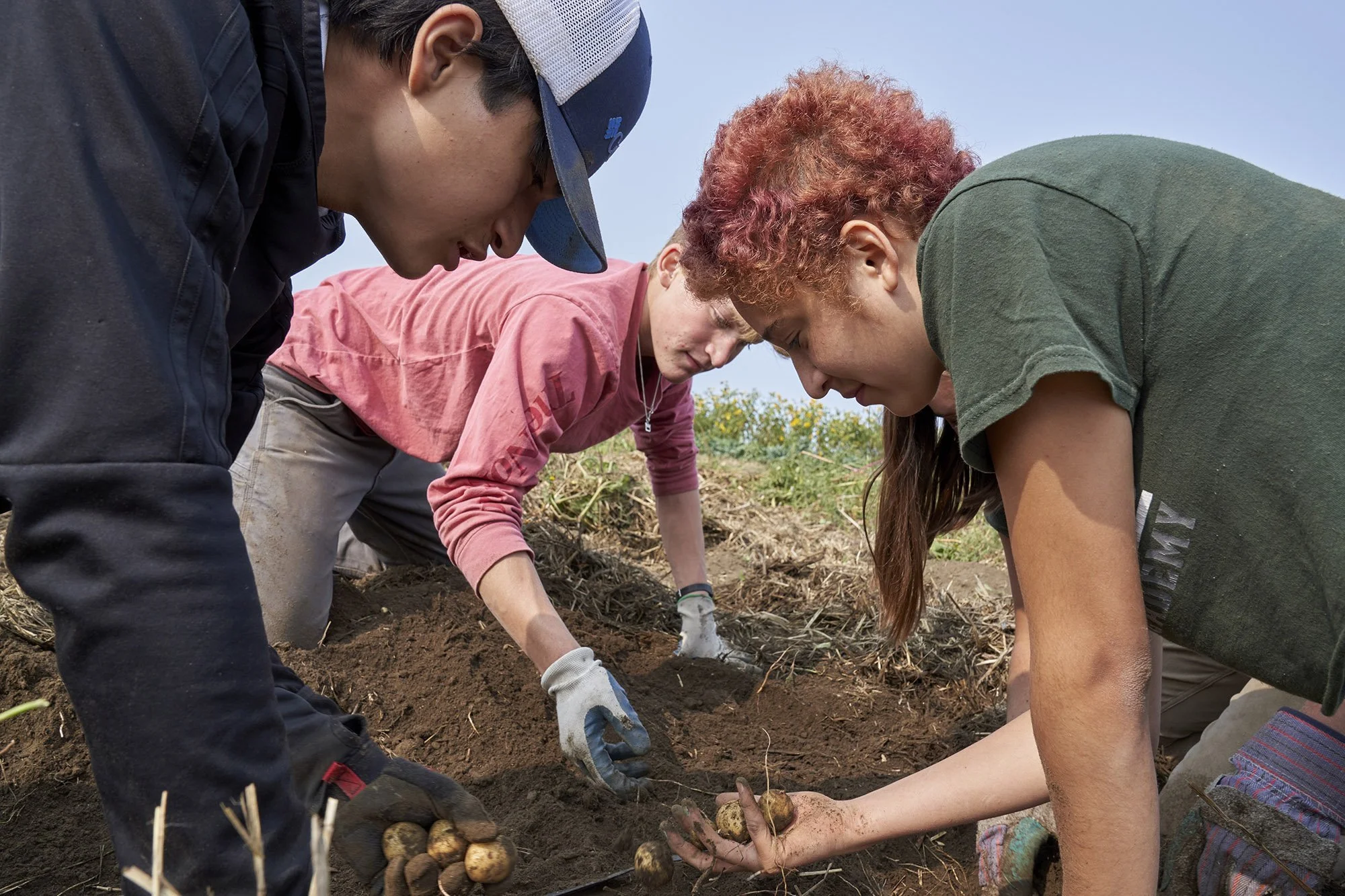
Connect with the land.
Connect with others.
Connect with yourself.
-
You’ll get your hands dirty as you plant, weed, and harvest crops on Garden Hill. You’ll also get your mind active as you take Farm Seminar and learn about agricultural practices, sustainable farming, and land use protocols. Time on the farm provides an opportunity for the shared work that establishes and sustains our interdependent community.
-
There are hundreds of acres of forest to explore on the Mountain School’s campus. Through Environmental Studies class, you get your own forest site to study - a place to engage with Field Science and Natural History. Afternoons provide the opportunity for woods crew: splitting logs, trimming limbs, and clearing trees, all while learning about forestry and fuel. Of course, there’s plenty of time to explore as well, and the Outdoor Program provides you with the skills to be comfortable in the woods, from knot-tying to stove use to how to read a compass.
-
At the Mountain School, you’ll engage with your food at every level: planting, nurturing, harvesting, cooking, and eating. This end-to-end experience with food fosters competence, confidence, and community. As you take Food Systems seminar, you’ll discuss the means of production, the modes of distribution, and consider real solutions to the challenges of feeding this planet. Culinary Studies students will have the chance to learn skills ranging from sauteing to fileting to fermenting. And, three times a day, we will all sit down together to enjoy the food and each other’s company. (And then do dishes.)
-
Understand the systems that shape our world. Engage in critical thinking. Do the labor that creates food and fuel. Discuss with your peers and sharpen your intellect. That’s what you’ll get in a semester at the Mountain School, and it’ll prepare you to find true, meaningful solutions in the real world. You’ll be a problem solver, ready for the future.

Each semester, 45 students gather on a hilltop farm in Vershire, Vermont to live, work, and study with each other and our faculty.
The Mountain School campus consists of living, learning, working, and farming structures, garden beds and animal pasture, maintained trails, and forested land from which we harvest firewood and maple syrup, on 418 acres of rolling hills.
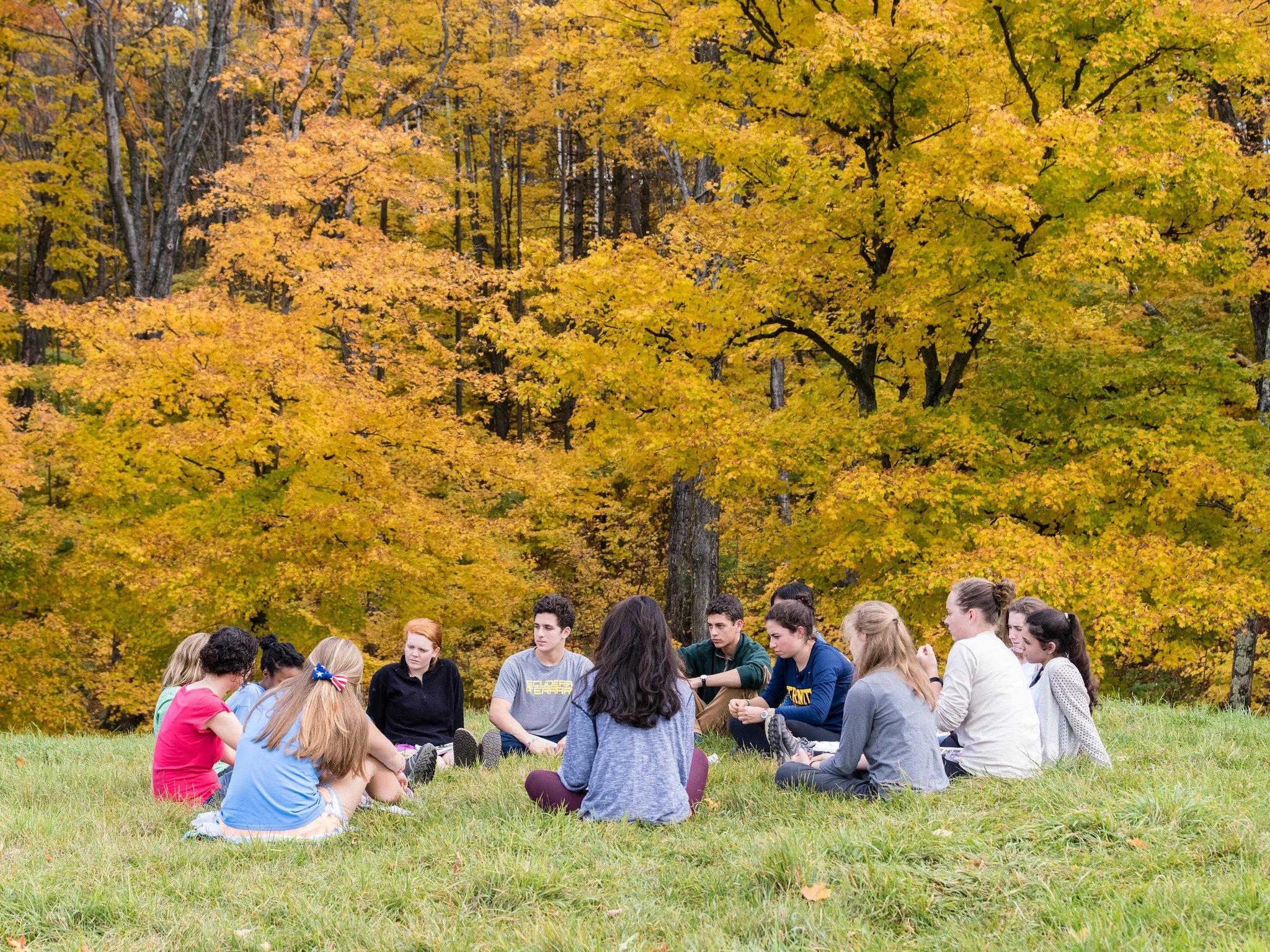
The Mountain School can take you where you want to go.
Get out of the grind. Put down your phone. Whether you want to learn to read the forest, farm the land, work in the woods, become an engineer or run a non-profit or write poetry… the Mountain School can take you where you want to go.
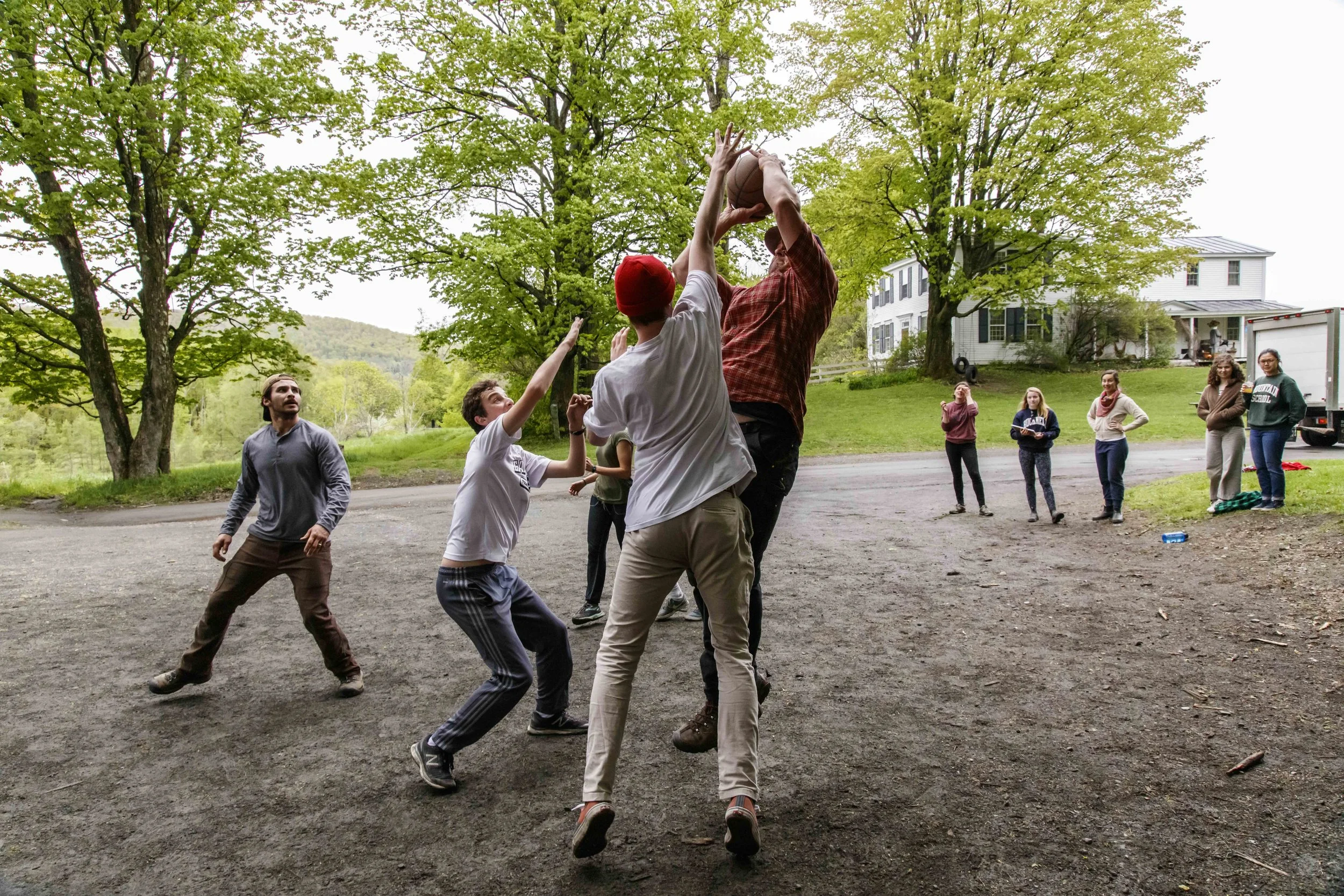
Independent & Interdependent
Share the work, share the learning. Engage in a semester based on trust and collaboration. Emerge more competent and more confident. Learn your own limits as well as your own expanses. Connect meaningfully with others.
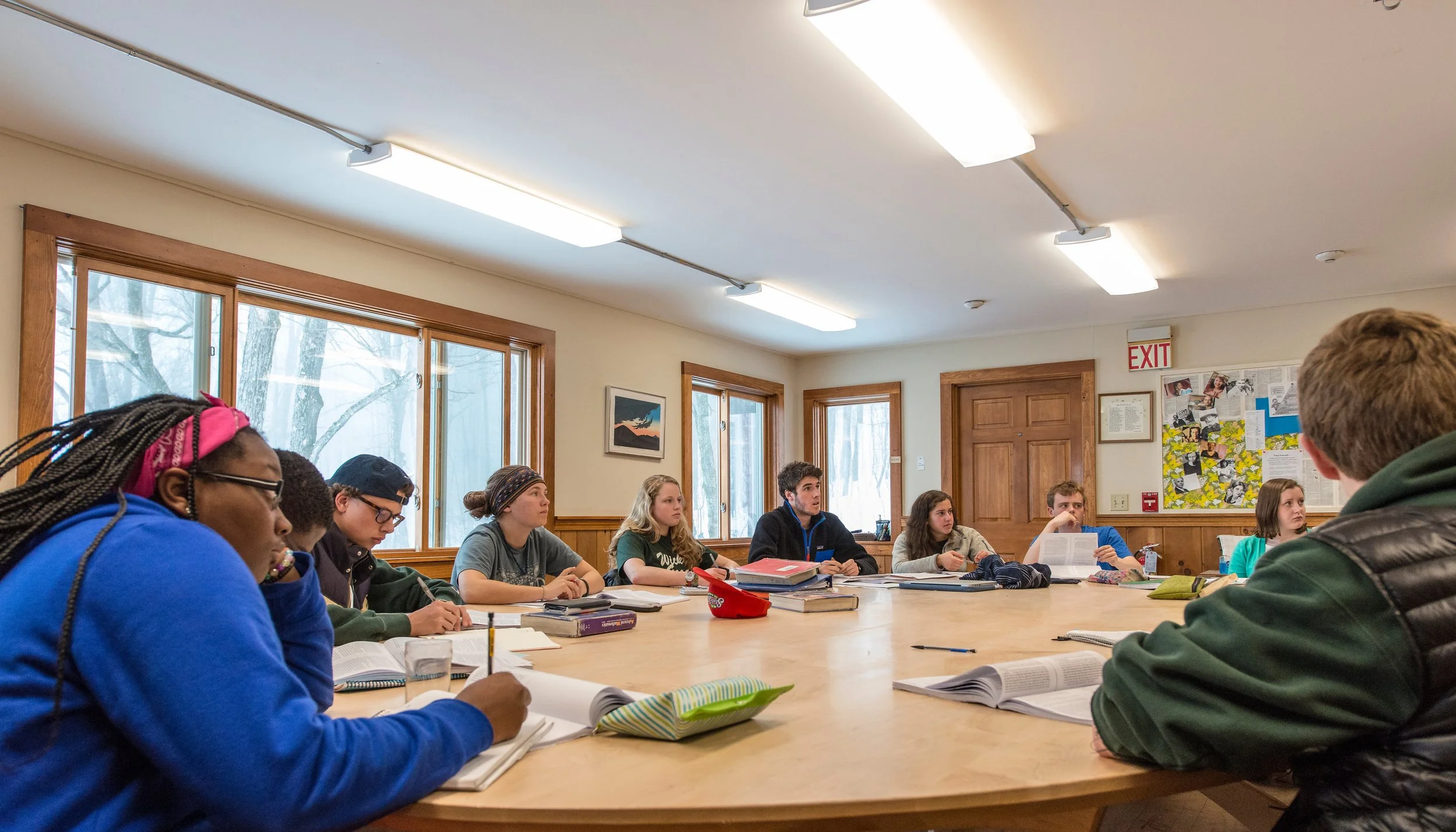
Our Mission
The Mountain School cultivates a diverse and interdependent community of scholars who learn to know a place and take care of it. Through collaborative learning and shared work, students emerge from their semester prepared to reach beyond the self and focus on the common good.
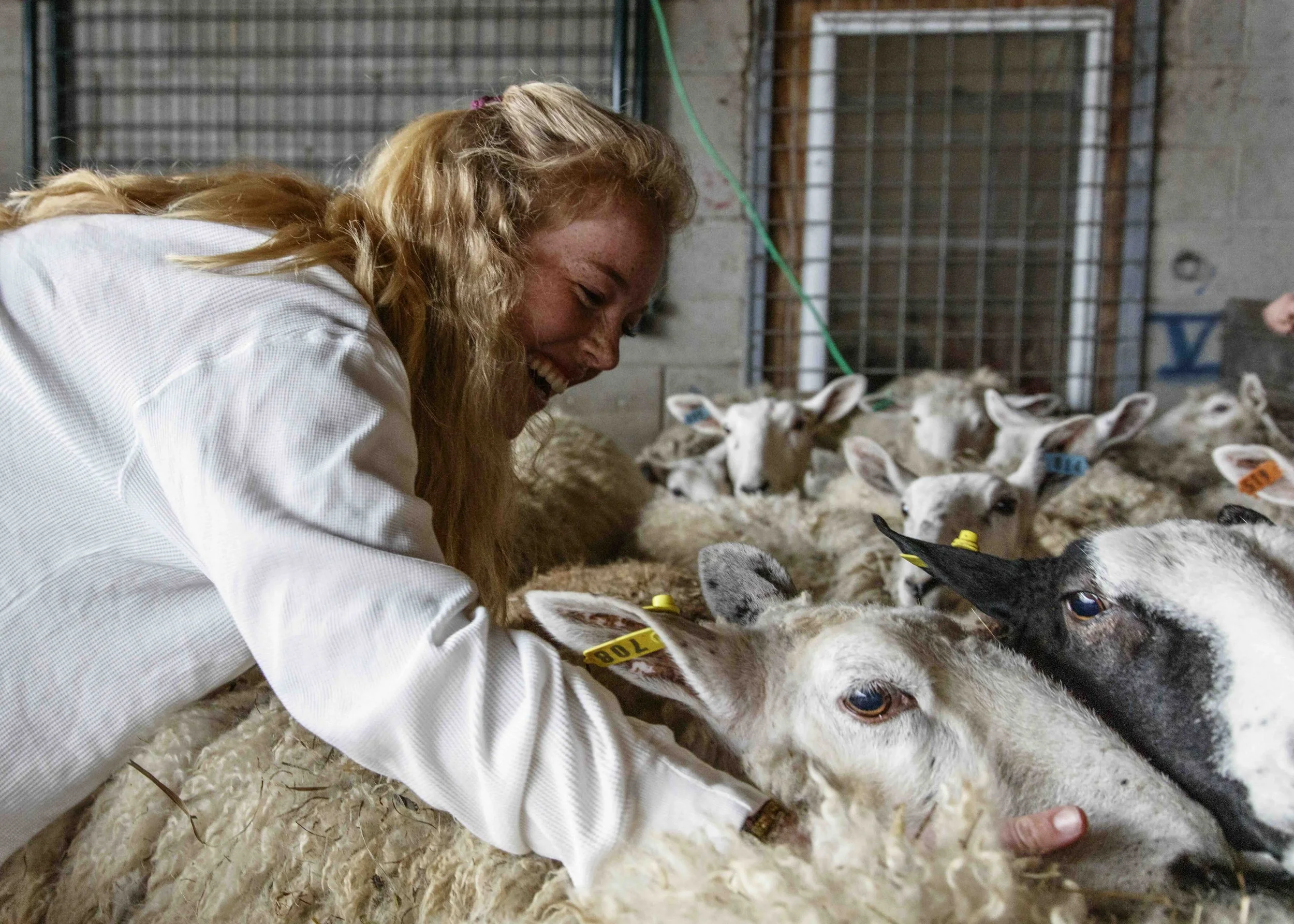
School History
In 1962, Mac and Doris Conard bought a hilltop farm in Vershire, Vermont and made it a school to carry on the land-centered learning of the Putney School. The school thrived for 20 years as a four-year boarding school.
When the Conards retired, they called upon Nancy and David Grant from Milton Academy to consider the school’s future. The Grants and the Conards conceived of the semester program and proposed the purchase of the Mountain School to the Trustees of Milton Academy in 1983.
In 1984, the Mountain School became the first recognized semester program in the country. The school has since had a long history of providing transformative experiences for its students, many of whom name their time at the Mountain School as a key moment in their development as both scholars and global citizens.
In 1994, Anne Stephens came from Seattle’s Lakeside School to serve as the school’s director. Alden Smith became director following Anne’s retirement in 2002. After a national search in the 2021-22 academic year, Alex Myers became the school’s current director.
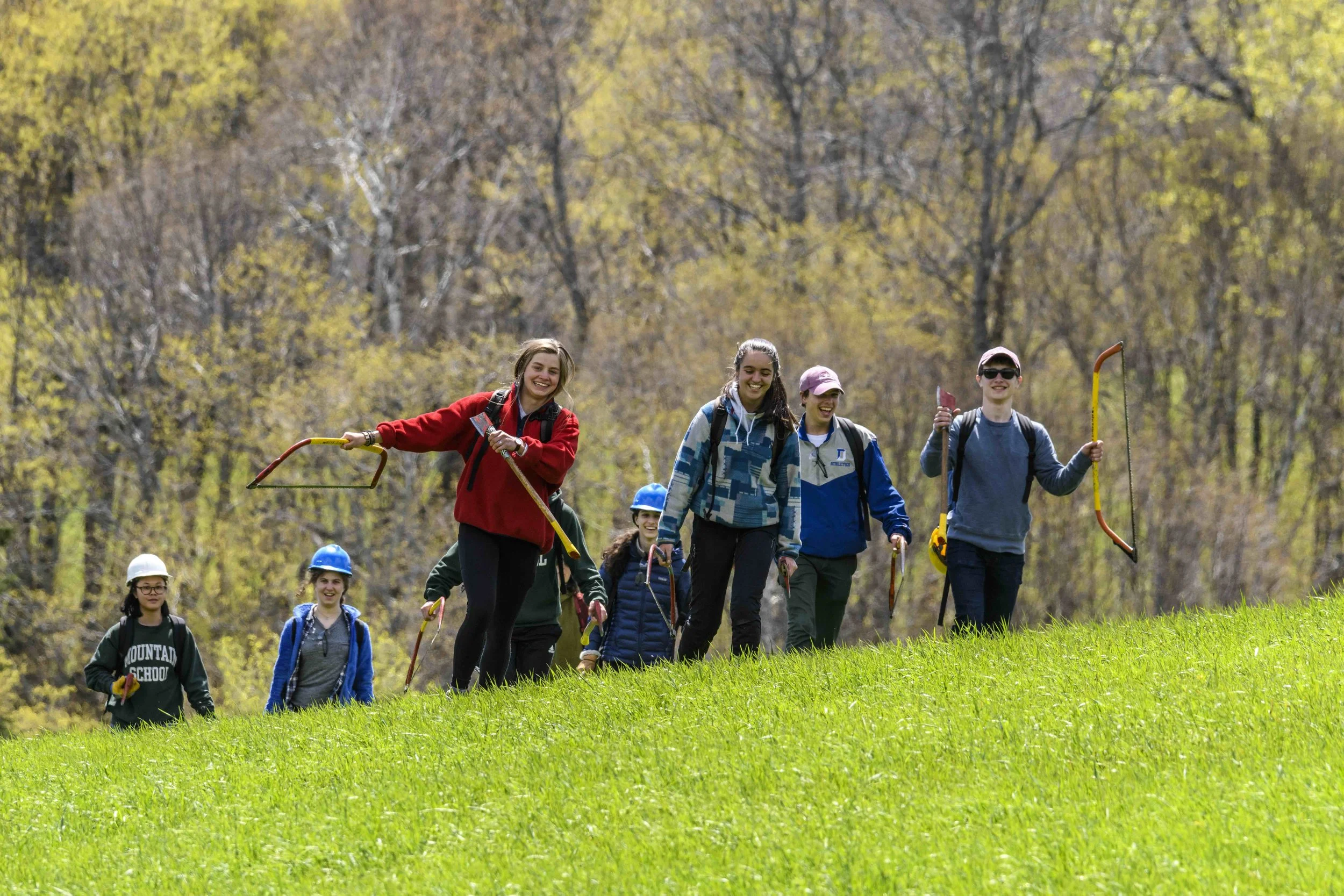
Land & Place
The Mountain School gathers on the unceded traditional lands of the Abenaki Nation of the N’Dakinna territory now called Vermont.
This land has long served as a site of meeting and exchange among indigenous peoples for thousands of years and is the home of the Western Abenaki People. We acknowledge the Abenaki community, their elders both past and present as well as future generations, as the traditional stewards of the lands and waters on which we gather. We also acknowledge that the Mountain School, Vershire, Vermont, and the United States were founded upon exclusions and erasures of many Indigenous people, including those whose lands we are on now: the place the Abenaki Nation calls the Dawnland. This acknowledgement is only one small step in a broader project of reparation.
We are grateful to Carol McGranaghan, Chair, Vermont Commission on Native American Affairs, and Don Stevens, Chief of the Nulhegan Band of the Coosuk-Abenaki Nation, for offering us the language with which to make this land acknowledgement.
Belonging, Equity & Inclusion at the Mountain School
The Mountain School aspires to be a school that centers justice, equity, and inclusion in all of its programs, that is trauma-informed in its structure and practice, that considers accessibility in its design, and that challenges students and faculty alike to prioritize community well-being. We work actively with each semester’s students, as well as with our alumni community, to implement, question, and design ways of teaching and practicing belonging, equity, and inclusion
-
Affinity groups at the Mountain School meet weekly and are facilitated by faculty members to provide a supportive, confidential space for students to have conversation with those with whom they share an important aspect of identity. At the start of each semester, faculty members will set up meetings for the Black, Indigenous, and People of Color (BIPOC) affinity group, the Lesbian, Gay, Bisexual, Transgender, Queer, Plus (LGBTQ+) affinity group, and the First-Generation, Low-Income (FLI) affinity group. In some semesters, other affinity groups form based on student interest. These have included a Jewish affinity group, an affinity group for children of divorced parents, and a dis/ability affinity group, among others. Affinity groups have a dedicated space on central campus to use for their meetings and a budget to support activities.
-
The Mountain School employs a full-time social worker and a full-time nurse to support the mental and physical health needs of the students, as well as having dedicated learning support faculty. Students can arrange individual meetings with these practitioners on campus or can coordinate off-campus care with other specialists. The Student Support Team (nurse, social worker, academic support practitioner) meets weekly to discuss topics of concern and make sure that students are connected to the resources they need for well-being.
-
A required course for all students, Core Seminar connects the dots between farm and food justice; health and well-being; and race, class, and gender. These seminar-style classes meet four times a week and are graded and for credit. They introduce students to conceptual frameworks and terminology that will help students understand the labor practices and land uses of farming, the food economy, racial and cultural identity construction, and the physiological connections between sleep and anxiety, among many other topics.
-
The Mountain School is committed to creating a school culture that is inclusive of all genders. We make these promises to every student:
You decide if and with whom you share your gender identity and status and/or your sexual orientation. There is no expectation that you disclose sensitive personal information unless you choose to do so.
You likewise decide the name and pronouns you will use while you are here. The name you go by does not have to match what is on your birth certificate.
You can expect to see your gender identity reflected in the Mountain School’s programming and in our curriculum.
You have the option to join your semester’s LGBTQ+ affinity group and/or to be matched with a graduate who shares your gender identity.
You have the right to housing that affirms your gender. All incoming students complete a housing survey indicating their preference for single-gender or all-gender housing. Our process for matching those requests with available dorm space is explained in the survey. Priority for either type of housing is based on need.
You may use any campus bathroom that feels comfortable to you. Mountain School bathrooms are open to all genders.
The Mountain School will not ignore bullying, harassment, or discrimination. If you experience any of these while you are here, we will take your complaint seriously. You can find our process for addressing these behaviors in the student handbook.
If you require medical care while you are here, you may request that we match you with a gender-affirming provider through the Vermont Diversity Health Project (VDHP). You may also request a confidential gender support plan before the semester begins or at any point once you are on campus.
-
The Mountain School believes in the capacity of students and faculty to be held accountable and engage in transformative and restorative practices. Though conversations to restore trust take time and emotional engagement, the Mountain School is committed to systems of accountability that acknowledge harm and create spaces for repair.
